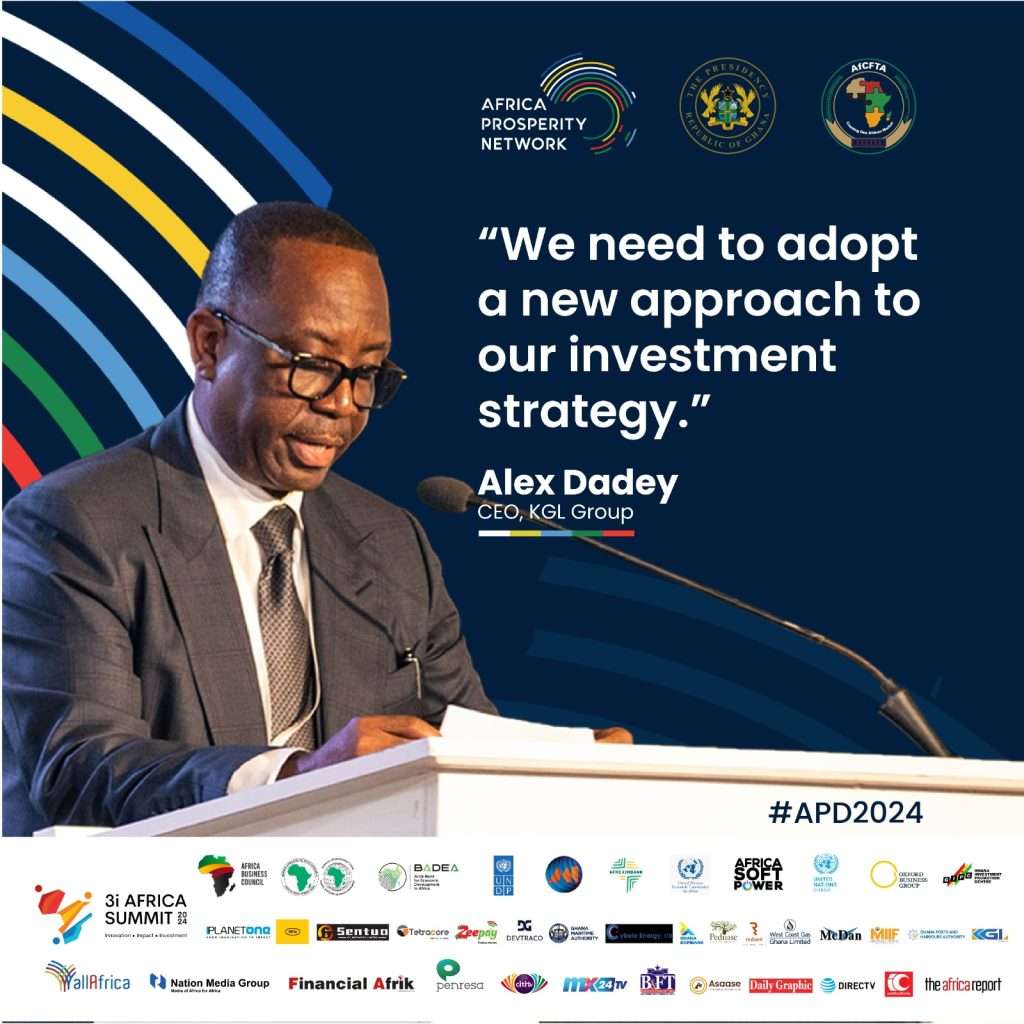African leaders in politics, business, manufacturing and other sectors of the African Continent are making a case for the private sector in Africa to lead the charge for the African Continental Free Trade Agreement (AfCFTA) and for the prosperity of Africa at the 2nd African Prosperity Dialogues (APD).
These leaders are taking part in a three-day dialogue on the prosperity of Africa under the theme of “Delivering Prosperity in Africa: Produce. Add Value, Trade; from 25th to 27th January, 2024.
CEO of Ghana Investment Promotion Commission (GIPC), Yofi Grant who spoke during a high-level panel discussion stressed on the need for African governments to design policies on local content policy to the benefit of the local industries.
“We have been speaking a lot about local content and local content laws were put in to empower our people to enable them to operate at the high level within the value chain in sectors that were dominated significantly by direct foreign investment”.
Mr. Grant added that “There is a fundamental concern especially when it comes to the extractives. Here we are in Africa, we are minerals and resource rich and so if we are to own the narrative and take control of the mindsets as to how we utilise it; that local content law should rather have been a foreign law. Because if I am in my house and somebody wants to use part of it regardless of whatever it is, I should be telling him how much he can get. He shouldn’t be telling me or dictating the pace”.
One of the panellists, Dr. Amany Asfor, president of the Africa Business Council also raised concern on how Africa yet imports so much with all the arable land it has to produce and feed itself.

She charged governments to ensure that 40 percent of all government procurements be given to local Small and Medium Enterprises (SMEs)
“We see that you are supporting the Africa Prosperity Dialogues. Our Prosperity will only come from focusing on empowering the private sector by policy, and that, one of the recommendations we took at the African Union Private Sector Summit is for us to have at least 40 per cent of all government procurements go to African private sector including SMEs”
“Whatever is produced on the African soil we can not import from outside the soil (Continent) and this is what we have to focus on” Dr. Asfor added.
More was said on governments giving incentives for local private businesses to attract investments to flourish, this includes the lowering of corporate taxes and access to capital.
These calls for supporting the private sector are not far from the outcomes discussed during last year’s retreat which considered the critical importance of financing – including trade finance, to increase the capacity of Africa’s businesses to invest in the production of goods, services and ideas that can be traded in the AfCFTA.
The Chairman of KGL Group Ghana, who also serves as Chairman at GIPC, Mr Alex Dadey made profound statements on the importance of private sector in the development of the African Continent

“It is crucial that the private sector take centre stage in driving our economic growth, making this summit an ideal space for the vital contribution”
Mr Dadey added in his statement that “For Africa to experience real economic growth, the private sector must take lead, thrive and also be resilient. I have always maintained that governments do not create wealth, the private sector does. Therefore incentivising the private sector is the surest way to sustainable growth”
Mr. Kwamena Duker, CEO of the Development Bank Ghana (DBG) shared the investment his organisation has made in the quest to see the private sector thrive,
“Today DBG has already directed over just under GHS one billion into the private sector, strengthening over 80 businesses, and fostering the creation of more than 6,000 jobs, with 38% empowering women, while also generating substantial foreign exchange revenue exceeding USD 40 million”.
It is worthy of note that the leaders believe the private sector may not work alone but needs private-public collaborations to thrive.









































